France is facing a crisis not seen in almost 70 years – is it time for a Sixth Republic?
The France of President Emmanuel Macron, who is really the egomaniac-in-chief, is somewhere on the spectrum between “spiraling political crisis” (Financial Times), “big trouble” (The Economist) and terminal collapse. Again.
Barely a week after a new, if fragile, government was cobbled together in acute crisis mode, the country is bracing “for big anti-austerity street marches and labor strikes,” while the state’s finances are “pernicious” and the budget for 2026 a big question without an answer. In Paris, for instance, the Metro is semi-comatose; in the country as whole, a third of teachers are on strike.
An earlier wave of protests – under the slogan “Let’s block everything”– did not quite achieve that ambitious aim, but it did attract double the number of participants the authorities had expected. In that respect – even if they were different in their ideological background – the French protests resemble the recent ‘Unite the Kingdom’ rally in London. On both sides of the Channel, decrepit, unpopular, unresponsive Centrist regimes are barely hanging on now.
As the French have taught us to say “Plus ça change, plus c’est la même chose” (“The more things change, the more they stay the same”). Especially after Macron’s two irresponsible and egotistic decisions of 2024, France can’t find a way out of the mess he has created: first, he called snap parliamentary elections to then, second, ignore the will of the French voters.
If Macron had respected the results of the elections that he himself initiated, he would have had to charge either a left-wing bloc, with the most combined votes, or the new-right Rassemblement National (RN), which obtained the most votes for a single party, with building a new government. Yet the man with a vast ego and an incredibly shrinking popularity base, clearly rejected by a preponderant majority of his people, felt he knew better. Since then Macron has tried to impose his will against parliament. The problem? Parliament won’t agree.
So, after what the YouTube channel of venerable left journal l’Humanité calls “the parliamentary hara-kiri” of the last politically short-lived prime minister, here we go again. Total deadlock at the political center; in the streets, picturesque unrest featuring traditional folklore, such as burning rubbish bins, baton-charging police, and teargas galore; and finally, yet another compulsive attempt by Macron the Unpopular to succeed with what keeps failing: installing a new – his fifth in less than two years – prime minister (his name is Sébastien Lecornu, but don’t bother remembering) who has no majority in parliament and thus, cannot possibly pass the budget ex-investment banker Macron wants in order to get his kind of austeritarian-neoliberal handle on France’s very real debt crisis. Please the rich, squeeze all others.
In short, since Macron refuses to either call fresh parliamentary elections or go away, let’s do the doom loop again. That at least is a tempting reading of the current situation in Paris and the unfortunate country that its detached president plagues. And yet, perhaps things are different this time. As in, even worse. Maybe this crisis is not just bad-business-as-usual but a sign that a bigger political earthquake is coming, the kind that reshapes the landscape.
Consider for starters the intriguing frequency with which commentators are making historic comparisons. Two British experts discussing the French mess for the conservative British magazine Spectator could not help but recall that the French Revolution – the big one, 1789 – started with a debt crisis, too.
In France, heavy-weight journalist Frédéric Taddeï is having thoughts of the Battle of Valmy – a French military victory that was however very much part of the Revolution. The Bastille had fallen more than a year before the battle, and the king would be guillotined less than half a year after it.
And the Financial Times cannot stop mentioning “1958.” That was the fatal year when France’s previous constitution – the blueprint of the hapless, dysfunctional Fourth Republic established following WWII – suffered cardiac arrest, to be replaced by the current iteration, the Fifth Republic. “Macron’s choices,” the Financial Times sagely notes, “have led to political turmoil not seen since 1958.” Indeed.
Let that sink in: between 1948 and 1958, during the Fourth Republic, French governments changed, on average, every six months. Former uber-President Charles de Gaulle designed the Fifth Republic precisely to end this chronic instability. Now, wrecked by the worst combination of narcissism and over-reach since Napoleon III, the Fifth Republic itself is plagued by self-blockage and volatility. Bravo, Emmanuel! One for “la grandeur!” Les “slow claps” de l’histoire will be yours forever.
Meanwhile, the ongoing Macronalypse is generating massive popular discontent because of increasing social inequality and anxiety combined with the authoritarian and manipulative habits of the president. No wonder some, for instance Jean-Luc Mélenchon – leading the non-Centrist (“populist”) left party La France Insoumise (France Unbowed) or LFI – are calling for a Sixth Republic, that is, yet another fundamental recasting of the constitution and political system.
So, what is it going to be? An agonizing, slow slog through two more years of Macron’s ego trip because that’s how long his term lasts and he won’t finally do the one decent thing he can still do for his country and resign? One nasty and not-so-little crisis after another?
Or is the Fifth Republic, De Gaulle’s proud creation, now ruined by a bombastic and incompetent epigone, on the verge of becoming an Ancien Regime? The bad memory left behind once a revolution has happened?
The RN’s Marine Le Pen is certainly right about one thing: Macron’s desperate attempt to sell his obstructive obstinacy as a struggle for political “stability” is deeply perverse. It is precisely his kind of “stability” – keeping a president without support in place to impose governments with even less support again and again, as if elections do not matter – that a clear majority of the French do not want. Instead they want genuine and urgently needed change.
What kind of change then? If you listen to the parties – on the New Left (LFI) and the New Right (RN), but not in the so-called center – that the French actually vote for, then they want an end to neo-liberal austeritarianism. They also agree on the need to regain true national sovereignty. On migration and economic policy, the left and right do not see eye to eye, but there is no doubt that, on both issues, the center is deeply unattractive.
It may, moreover, be an irony of history that, in at least some key respects, the faux-Gaullist Macron may be swept away by things De Gaulle recognized as irking the French back in that annus horribilis of 1958. As he told us in the chapter ‘Renewal 1958-1962’ of his ‘Memoirs of Hope’, the 1958 crisis was not only about France’s brutal and miserably failing colonial war in Algeria. It was also about the lopsided, nationally disadvantageous relationship to the EU’s predecessor, the ECSC, and the at least equally detrimental one with both the US and NATO.
The EU is already the target of explicit criticism from both the RN and the LFI. Both key RN leaders, Marine Le Pen and Jordan Bardella keep reiterating that one of their aims is to stop wasting money on it. Both attack the EU’s dismal, disgraceful failure to protect the economic interests of its member states against the US tariff war. Indeed, for Bardella, Ursula von der Leyen’s recent fiasco at Trump’s Turnberry Berghof amounts to “democratic treason,” a “political setback,” and a “capitulation.”
You will hardly hear similarly clear words about NATO. But, Atlanticists, don’t bank on that silence. It does not mean there is no discontent. It simply means that the interests attached to NATO – that is what is left of the US empire in Europe – are even more sensitive than those tied to the EU. As you would expect in the de facto dual NATO-EU system, in which the EU plays second fiddle.
The crisis of the Macron regime that is afflicting the French – called in France either “Macronisme” or “la Macronie” – may look as if it is “merely” about budgets, debt, pensions, public holidays, and all in all, fiscal austerity and social inequality. Yet there is an international, even geopolitical dimension. A France ready to reclaim genuine sovereignty will have to at the very least fundamentally recast its relationship with both the EU and NATO.
And if it is smart, it will also have to rediscover the real de Gaulle, a statesman hardened in patriotic rebellion and a war for all or nothing – not a pampered finance whiz kid – who knew that Europe stretches from Gibraltar to the Urals (no, not merely to Kiev) and that its western part needs Russia to balance against a ruthless and exploitative US.
The statements, views and opinions expressed in this column are solely those of the author and do not necessarily represent those of RT.

 1 month ago
16
1 month ago
16
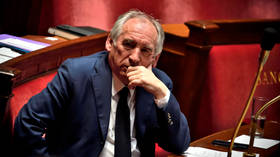
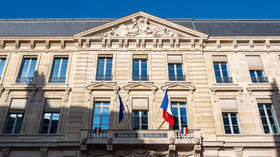

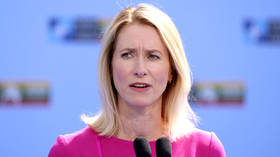




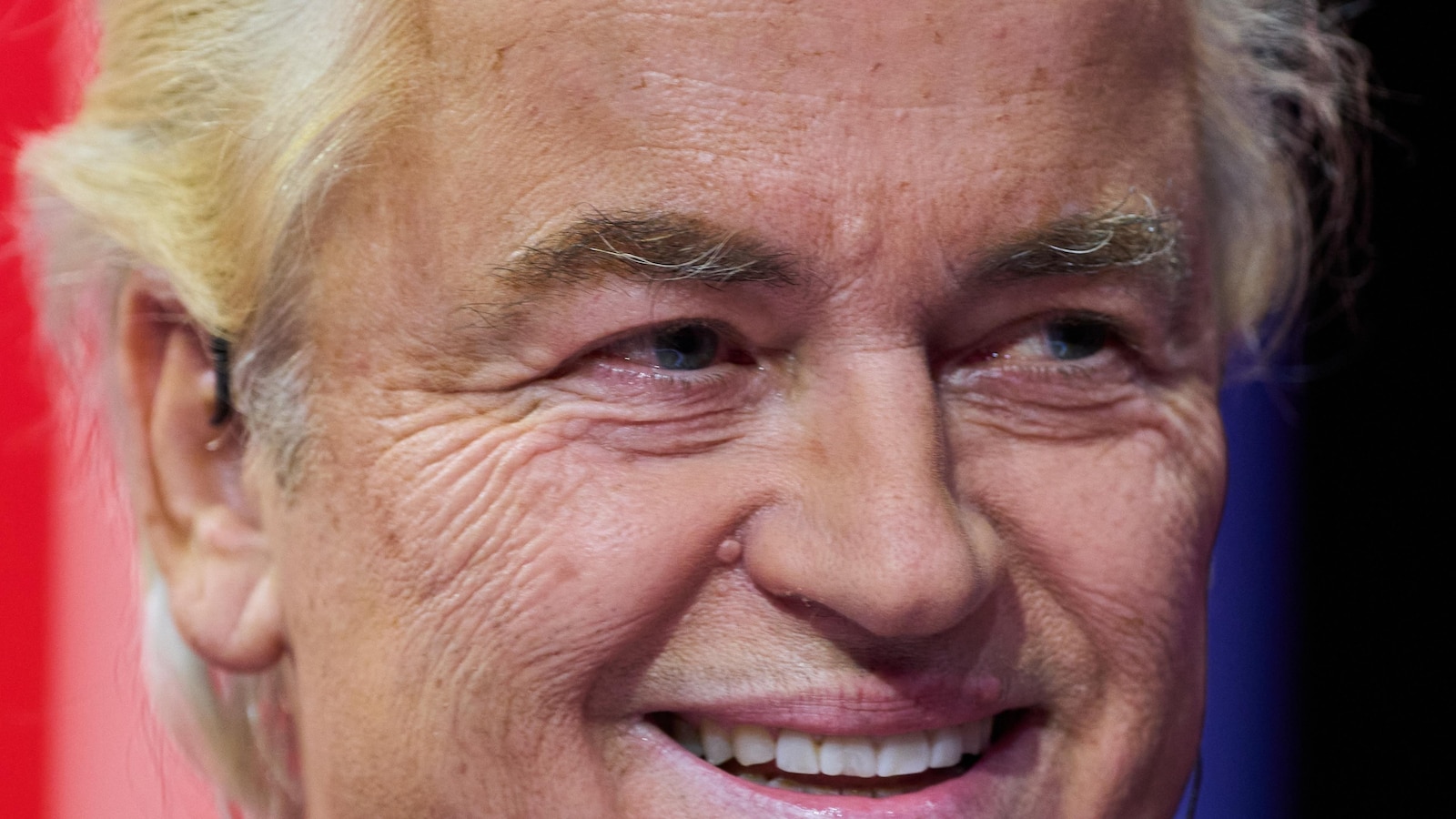




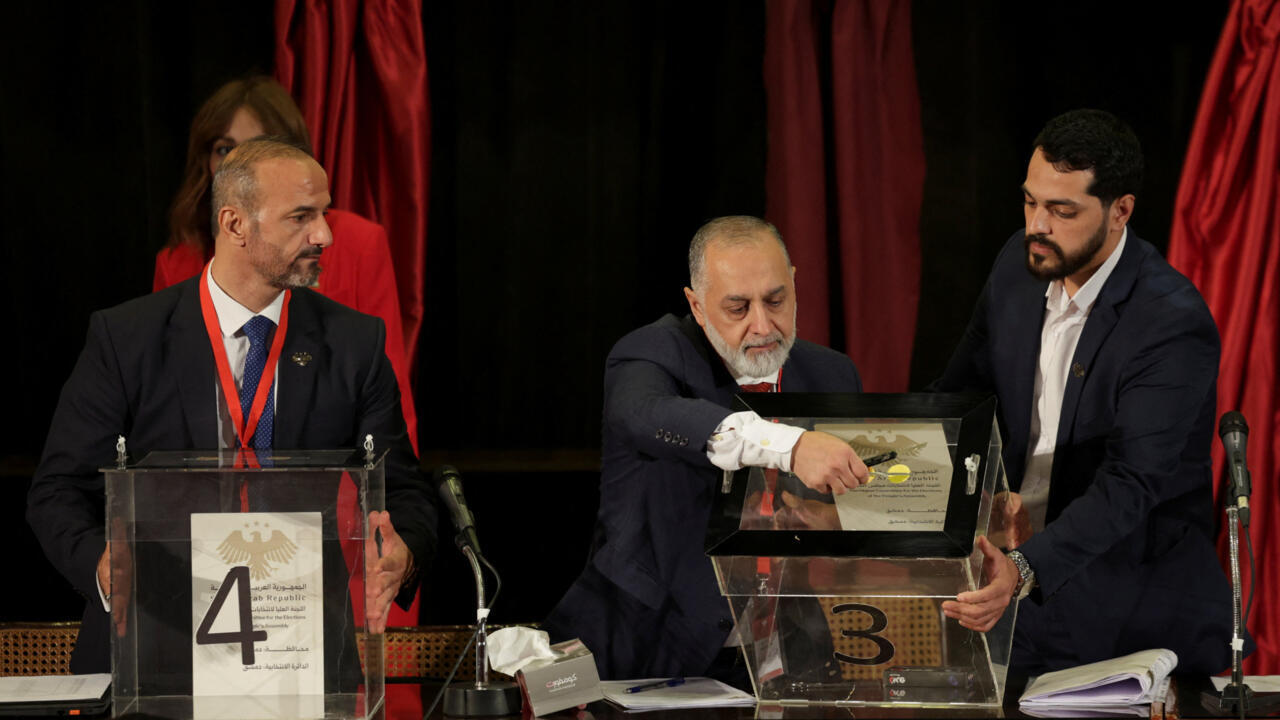
 English (US) ·
English (US) ·